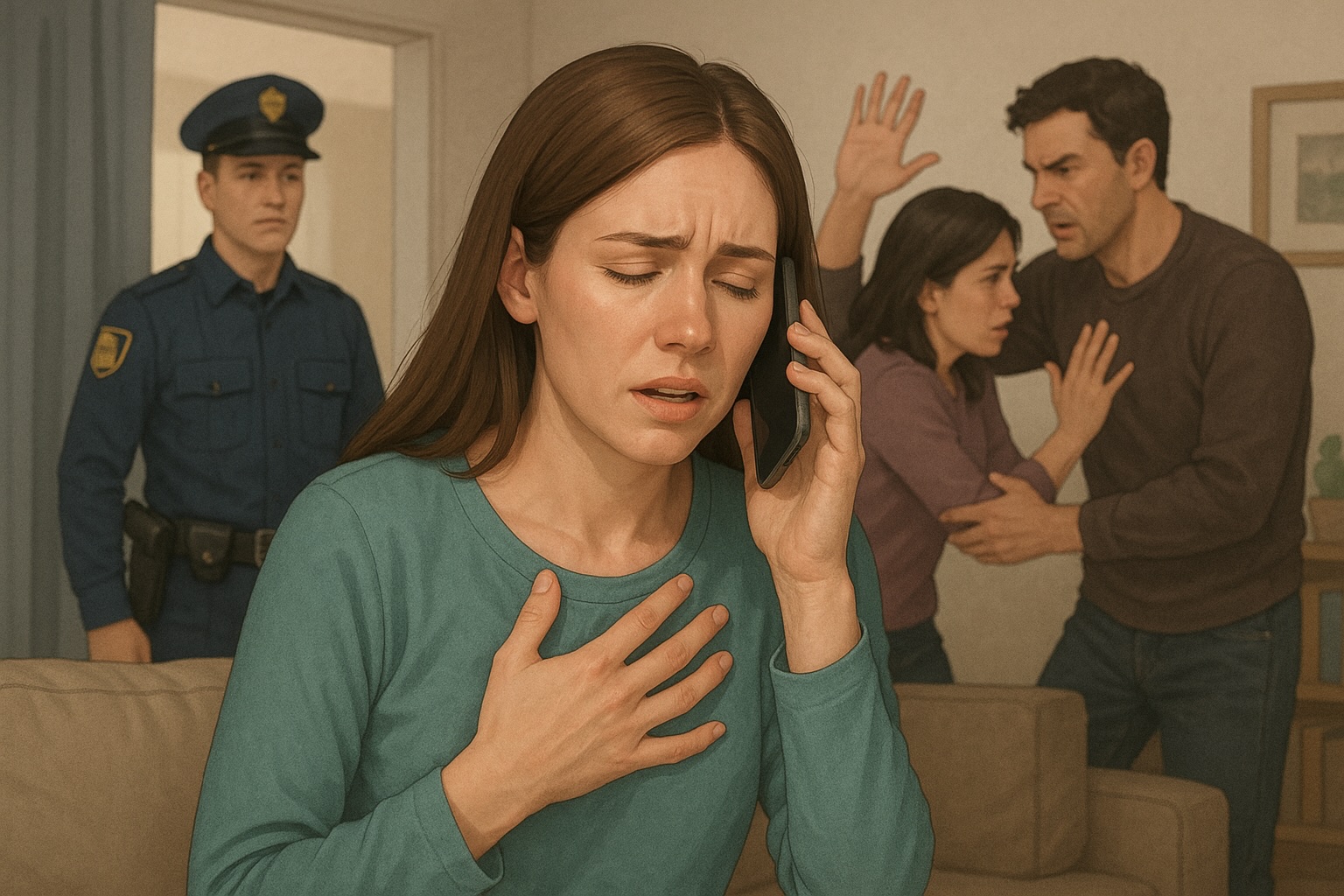What to Expect When You Call 911 for Domestic Violence in Ontario
Calling 911 for domestic violence can be overwhelming. Here’s exactly what happens—from the moment you make the call to when police arrive and what support you’ll receive in Ontario.

If you are in danger because of domestic violence, calling **911** can be one of the most important steps you take toward safety. In Ontario, police officers are trained to respond to these calls with **urgency, care, and protection**.
If you’re unsure what will happen when you make that call, this guide explains the process step-by-step—from dispatch to police intervention and aftercare.
***
### 🚨 1. The 911 Call
When you dial 911:
* A **dispatcher** will answer and ask: “Do you need police, fire, or ambulance?”
* Say "**Police**" and provide your location as clearly as possible.
* Stay on the line. The dispatcher will ask:
* Is anyone hurt?
* Are you safe right now?
* Is the aggressor still present?
* Are there children or weapons in the home?
> 💡 You don't need to explain everything—just enough for them to assess urgency.
***
### 🚓 2. Police Are Dispatched Immediately
Once the dispatcher determines there’s a risk of harm:
* Police will be sent to your address right away.
* Multiple officers may arrive to ensure safety.
* In many Ontario cities, officers are trained in **intimate partner violence** response.
***
### 🏠 3. When Police Arrive at Your Home
Police will:
* Secure the scene (ask the aggressor to leave the area or separate both parties)
* Check for visible signs of assault, damage, or weapons
* Interview **you** and **any children or witnesses**
* Document what they see and hear
* Assess whether criminal charges should be laid
> 📌 Ontario uses a **“mandatory charge” policy**—police can lay charges even if the victim doesn’t want to press them, for your protection.
***
### 📄 4. If Charges Are Laid
* The abuser may be arrested immediately
* You may receive a **no-contact order** or **bail conditions** for your safety
* Police may connect you with **Victim Services** before they leave
***
### 🛡️ 5. After the 911 Call: Your Rights & Support
You may receive:
* A **referral to a local shelter or women’s resource center**
* Support from the **Victim/Witness Assistance Program (VWAP)**
* Legal advice or referrals through **Legal Aid Ontario**
* Help obtaining a **restraining order** or **peace bond**
* Child protection referrals if children are present
You will not be forced to return home if it's unsafe.
***
### 🙋♀️ Common Questions
\*\*Q: Will the abuser find out I called?\*\*A: Police will not reveal who called 911 if you are in danger.
\*\*Q: Do I need to press charges?\*\*A: No. Police can act independently to protect you.
\*\*Q: What if I change my mind after calling?\*\*A: Police are still obligated to investigate and ensure your safety.
***
### 📌 Summary: What Happens When You Call 911 for Domestic Violence
* ✅ Your safety becomes the **top priority**
* ✅ Police are dispatched immediately, even if you hang up
* ✅ Officers assess danger, gather evidence, and may arrest the abuser
* ✅ You may receive immediate referrals to victim support
* ✅ You will never be forced to stay in a dangerous situation
***
### 📞 Emergency and Support Resources in Ontario
* **911** – For any life-threatening emergency
* **Ontario Victim Support Line (24/7):** 1-888-579-2888
* **ShelterSafe.ca:** [Find a shelter near you](https://www.sheltersafe.ca/)
* **Legal Aid Ontario:** 1-800-668-8258
* **Assaulted Women’s Helpline (24/7):** 1-866-863-0511
***
### Frequently Asked Questions (FAQs)
#### 1. What happens if I call 911 and hang up?
If a 911 call is made and then disconnected, the dispatcher will assume there is an emergency and will still send police to the location associated with the call to conduct a safety check.
#### 2. Will my partner be arrested if I call the police?
It depends on the evidence. Due to Ontario's mandatory charging policy, if police have reasonable grounds to believe a domestic offence happened (e.g., they see injuries, there are credible witnesses, or you state you were assaulted), they are required to lay charges and make an arrest.
#### 3. Can I "take back" my statement or "drop the charges" later?
No. Once charges are laid by the police, the case is controlled by the Crown Attorney's office, not the victim. While your wishes are considered, you cannot "drop the charges." This policy is in place to protect survivors who may be pressured or threatened by an abuser to recant.
#### 4. What if there are no visible injuries? Will the police still do something?
Yes. Physical assault is not the only domestic violence offence. Police can lay charges for other crimes like uttering threats, forcible confinement, or criminal harassment (stalking), none of which require physical injuries.
#### 5. What is Victim Services and how can they help me?
Victim Services is a community organization that works with police to provide immediate emotional and practical support to victims of crime. They can help you with safety planning, provide information about the court system, connect you with shelters and counselling, and help you apply for financial assistance.
#### 6. Will my children be taken away if I call the police for domestic violence?
No. Calling the police to protect yourself and your children is seen as a protective action. Child protection services (like the Children's Aid Society) are more likely to get involved if they believe a parent is *failing* to protect their children from exposure to domestic violence. Reporting the abuse is a step towards ensuring their safety.
